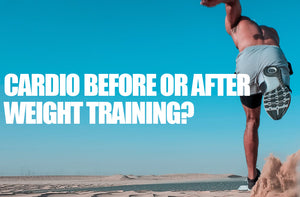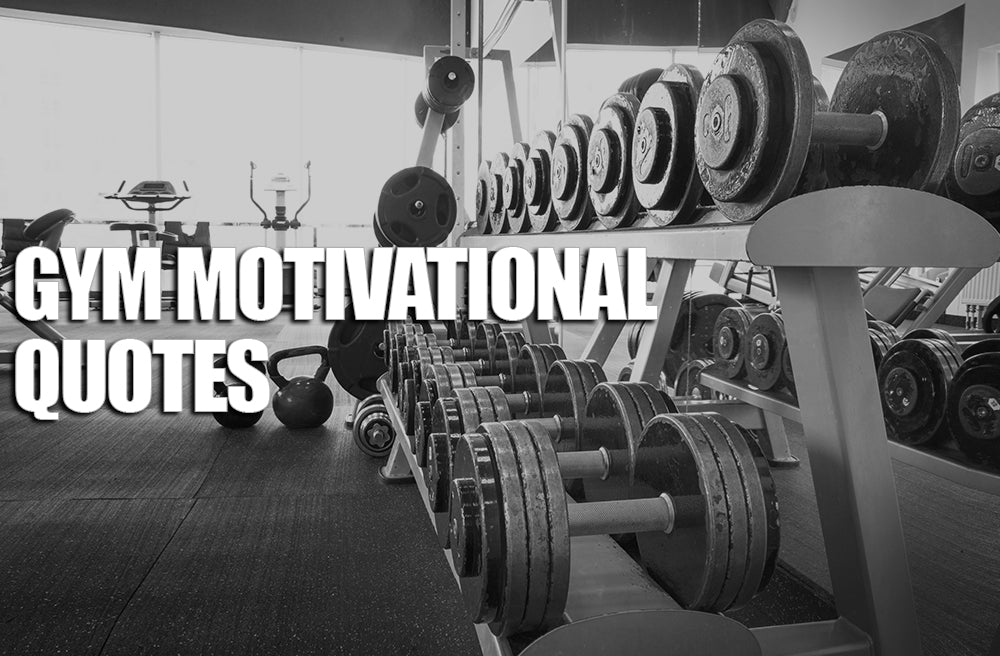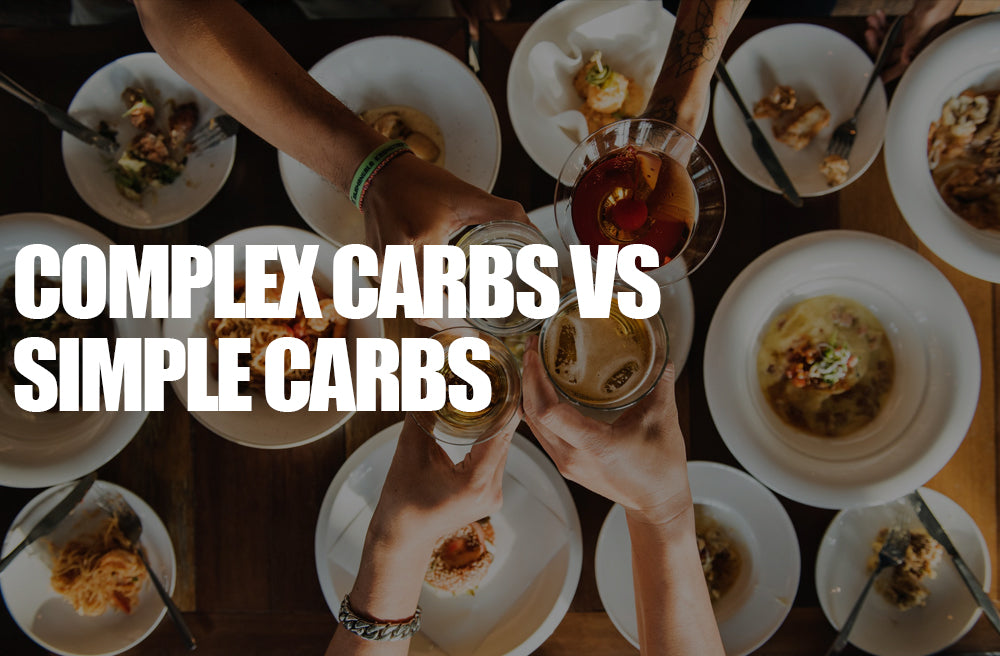Home
News
Cardio Before or After weights?
Cardio Before or After weights?
September 07, 2018

Cardio and how it works
Most of us absolutely hate the thought of even doing cardio. We usually do it consistently for about two weeks, and then motivation starts slowly slipping out to even get up at 5:30AM every day. This happens because of two things: your workout routine wasn’t created around a sustainable scheme, or you simply didn’t create the goal driven mindset that will get you moving regardless of any excuses that may be present.
WHAT IS CARDIO?
Cardio is generally viewed as an exercise that helps improve your CARDIOvascular health. This means anything that gets the heart healthy and pumping.
Does lifting weights get your heart pumping? Yes.
Can squatting get your heart pumping? Yes.
That doesn’t necessarily mean that these are “cardio” exercises, everything technically could be “cardio”. What we are actually trying to aim for isn’t necessarily cardio training, but rather conditioning training. Conditioning exercises can be performed over an extended period of time without stopping or short period with intervals. The goal of conditioning is to increase your oxygen intake, improve blood flow, get the heart healthy and keep you moving. This in turn can help you burn calories and lower body fat percentage.
WHY DO CONDITIONING?
Condition training can help your heart get stronger and improve your oxygen consumption rate. These are usually measured by your aerobic capacities. Conditioning also supports stronger lungs, better sleep, bone density and weight loss.
HOW DO YOU TRAIN?
Go and do any movement that gets you breathing with intention. Try to move around for at least 30 minutes at almost a maximum effort. Intensity should be to the point where you a breathing heavy and can’t keep a conversation.
DOES FASTED CARDIO WORK?
The idea of performing conditioning training on an empty stomach first thing in the morning is misguided, especially for muscle growth goals. At best, body composition effects won’t be superior to training with calories in your system. At worst, you will decrease overall fat burning and lose muscle growth.
Training in a glycogen depleted state can have a catabolic effect on muscle. Fasted cardio can increase the amount of proteins used for energy during training.
However you want to look at it, putting hard earned lean muscle at risk, in an attempt to burn a few more calories makes no sense. But I all means, if you are feeling better and think training before breakfast is getting you closer to your goals, do it. Find what you like and use it as motivation to keep you moving, and pushing you in the direction that you want be going.
CARDIO BEFORE OR AFTER LIFTING?
We say this too much, but it really ultimately depends on your goals. The way you want to use your energy or where you want your energy focused determines when to do conditioning.
If you are specifically trying to improve your endurance, you probably want to do cardio first, and then accessory hypertrophy with weights.
If you are trying to improve strength or stimulate muscle growth, you probably want to use most of your energy lifting weights first, and then doing an auxiliary conditioning workout. Performing an aerobic conditioning type exercise before weight training will decrease your ability to perform these movements with proper technique because your muscles are already fatigued. You could even begin to compensate with other muscle groups, moving the contraction or technique of the lift away from the target zone.
If you have the time to do two splits, or workout twice in a day, separate your weight training workouts and conditioning workouts approximately with an 8 hour difference. This should give you enough time to recover and workout without problems.
Want to recover efficiently after every workout? Check out
Iso-Wurx, with a complete amino acid profile, delicious flavors, and enzyme support to help you absorb nutrients, you will hit your next training session in no time.
You can also combine both and do them simultaneously by using supersets of a cardiovascular movement with a weight lifting movement. Again, whether you do cardio or strength first depends completely on your unique goals and body type. If you don't have a clear goal, however, stick to weight training first. But don’t skip your cardio.
RUNNING IS NOT REQUIRED
As we mentioned earlier, conditioning or cardio exercises can be any sort of movement that is being performed while increasing your heart rate. This doesn’t mean you have to run all the time, ride a bike or continuously use the elliptical. These can be great forms of cardio but become not only boring but less effective too if it’s the only form of cardio being performed.
DON’T SKIP IT ALL TOGETHER
Cardio or conditioning training is crucial for great health but not necessary for weight loss. If you want to lose weight don't go all out and live on the treadmill for multiple hours a day. Take some time to understand what works for you and what you find fun. Slowly add cardiovascular exercises to your program. The weight loss will come naturally. If you are going to lift weights and do cardio during the same block, do the weight training first. Keep your nutrition balanced and vary your training.
 Results may vary. These statements have not been evaluated by the Food and Drug Administration. This product is not intended to diagnose, treat, cure, or prevent any disease.
Results may vary. These statements have not been evaluated by the Food and Drug Administration. This product is not intended to diagnose, treat, cure, or prevent any disease.
References:
-Lee YS, Ha MS, and Lee YJ. The effects of various intensities and durations of exercise with and without glucose in milk ingestion on postexercise oxygen consumption. J Sports Med Physical Fitness 39: 341-347, 1999
-Izumi Tabata, K. I. (1997). Metabolic Profile of High Intensity Intermittent Exercises. Medicine and Science in Sports and Exercise, 390-395
-Gonzalez, J. T., et al. Breakfast and exercise contingently affect postprandial metabolism and energy balance in physically active males. Br J Nutr. 23:1-12, 2013.
-Benjamin Weisenthal, C. B. (2014). Injury rate and patterns among crossfit athletes. The Orthopaedic Journal of Sports Medicine, 1-7.
American Council on Exercise: High-Intensity Interval Training
-Bonen, A. et al. (2008). Effect of training in the fasted state on metabolic responses during exercise with carbohydrate intake. Journal of Applied Physiology.
Leave a comment
Comments will be approved before showing up.




 Results may vary. These statements have not been evaluated by the Food and Drug Administration. This product is not intended to diagnose, treat, cure, or prevent any disease.
Results may vary. These statements have not been evaluated by the Food and Drug Administration. This product is not intended to diagnose, treat, cure, or prevent any disease.


